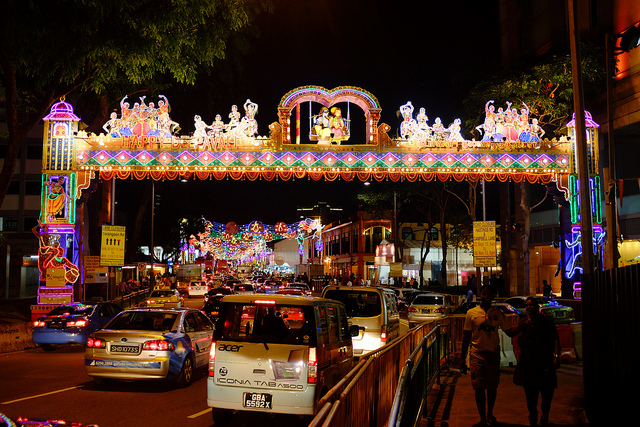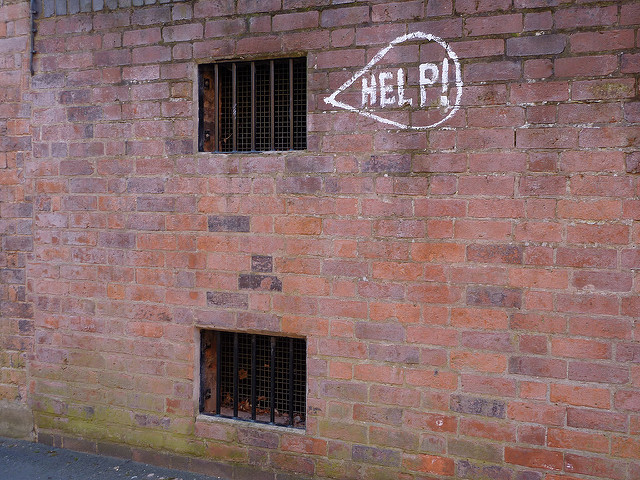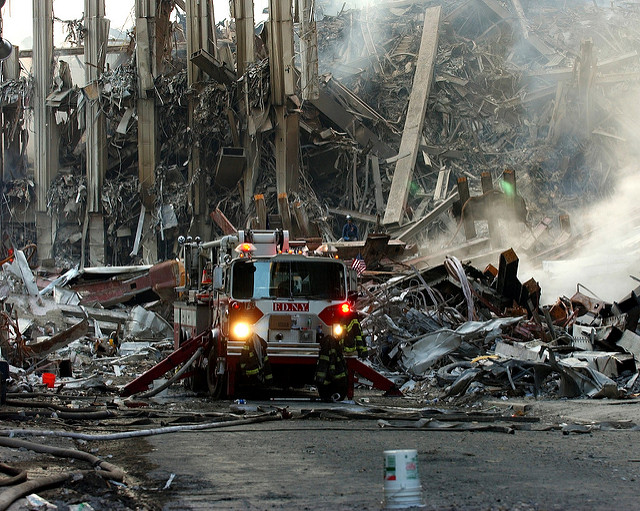Back in the 50s and 60s, when the kampong spirit was still alive, Singaporeans used to mingle and hang out with their neighbours. Everyone knew everyone, and the sense of community was strong in all the different estates.
But sadly, perhaps due to work or changing mindsets, Singaporeans now prefer to keep to themselves instead of befriending their neighbours. They’d rather suffer through awkward lift rides than talk to their neighbours.
The constant need to be on our phone is making us lose touch of what’s real -- the people around us.
But is being friendly to your neighbours all that bad? Is the kampong spirit to be avoided like a real hantu?
We think not. Here are reasons why being friends with your neighbours is a good idea.
Help to collect delivery package
 via Flickr
via Flickr
Online shopping is convenient, but its convenience stops at what it is -- being online. The inconvenience comes when the package arrives on the day you’re not home.
Instead of getting the delivery man to hide it in the electrical riser (which is dangerous now that everyone knows the secret), you could ask one of your neighbours to safekeep it until you get home.
Keep us updated about the neighbourhood
 via Flickr
via Flickr
Being familiar with the people around you helps you feel closer to the community, and strengthens your sense of belonging.
Humans need this -- it’s true, it’s even number three in Maslow’s hierarchy of needs. And as people you see on a daily basis, the reason to foster good relationships with your neighbours is all the more necessary.
Also, it’s always a bonus to make friends with the neighbourhood kaypoh queen. She probably has the best intel on which shops give the biggest discounts, which hawker’s food standard has dropped, and whose kid topped the PSLE.
Learn about different cultures
 via Flickr
via Flickr
Because Singapore is so racially diverse, most of us tend to have neighbours that come from different ethnicities and backgrounds.
This means we are exposed to more cultural festivities, which also means we get to revel in the various celebrations (and get to eat free home-cooked food) when the time comes.
It’s only in our country that you get to experience Chinese New Year, Hari Raya, Deepavali, and Christmas celebrations in the same housing estate, and sometimes even on the same floor.
Emergency help
 via Flickr
via Flickr
When emergencies happen at home, the nearest help would always be your neighbours. Imagine this: suddenly collapsing on the floor, with your phone out of reach, and the only way to call for help is to shout.
If you aren’t close to your neighbours, they might suffer from the Bystander Effect and think that someone else -- perhaps someone who is closer to you -- would help. But if you are, chances are that they would come to your rescue once they hear you yell.
Or say you’re home taking care of your child when you get a call from your elderly mum saying she just fell down and needs to be taken to the hospital ASAP.
As unfortunate as it sounds, things like this happen. And when it happens, the nearest person you could turn to for help is your neighbour. It certainly beats calling up your entire contact list on the search for an available babysitter, and then having to send your kid there.
Vacation help
 via Flickr
via Flickr
No security alarm could trump the protection that is real life neighbourhood watch. When you live in an estate where everyone’s always looking out for each other, going on holidays would feel even more relaxing.
Neighbours could help to look out for suspicious characters lurking around your home, water your outdoor plants, help you keep newspapers at your doorstep, and (if they are open to it) even look after your pets for you.
It keeps the community united during emergencies
 via Flickr
via Flickr
We’ve all learned in horror movies that it’s always better to conquer crises as a group. Guess what, the same could be applied to real life situations.
If a terror attack were to happen, a banded community would definitely respond in a more fitting way as opposed to divided individuals. If everyone possessed a united kampong spirit, overcoming major emergencies would be less painful.
Top image via Flickr.
--
Start being friendly to your neighbours by greeting them, or by simply asking about their day. Having good neighbourly relationships is important, and even more so during times of emergencies.
Staying united and building community resilience is the key to overcoming possible terror attacks.
This sponsored post in collaboration with SGSecure makes Mothership.sg’s writers feel all warm and fuzzy at the thought of our country reigniting that kampong spirit again.
If you like what you read, follow us on Facebook, Instagram, Twitter and Telegram to get the latest updates.
